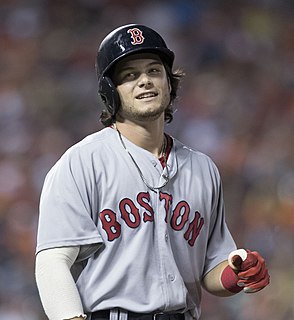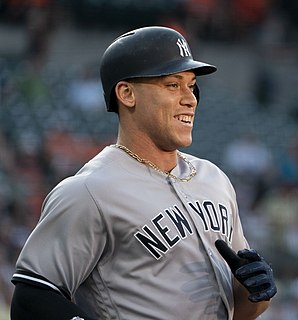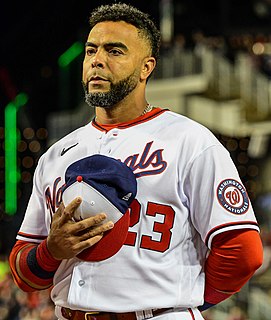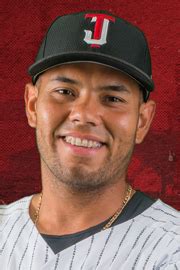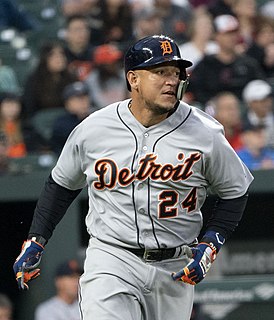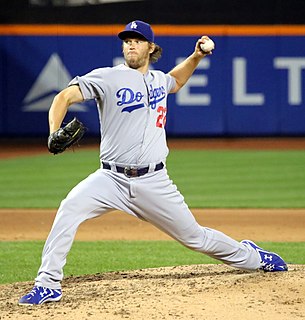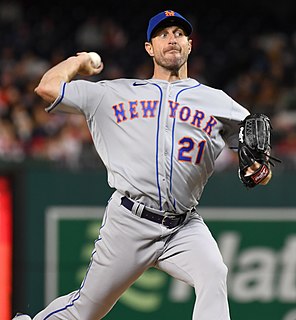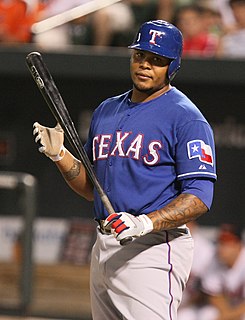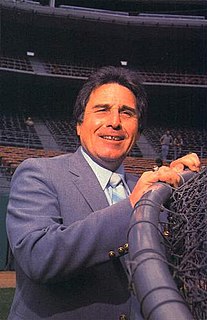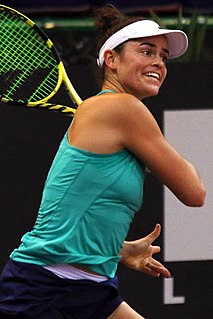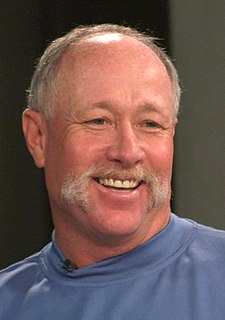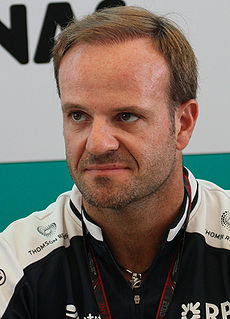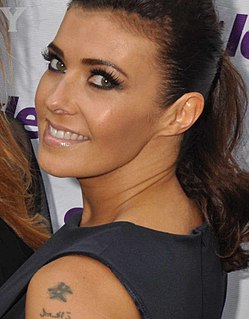A Quote by Andrew Benintendi
The big thing I noticed from High-A to Double-A is that when you have an advantage count as a hitter, you're not going to get as many fastballs. Adjusting to the 2-0 changeup, that 3-1 off-speed pitch - things like that. I think my swing can stay the same; I just was getting myself out.
Related Quotes
Playing catch is often the first professional act of the day, it's a transition from personal life to team business. Lastly, as all position players think they can pitch, at least half of us are working on our off-speed stuff likely at the detriment of our elbows and shoulders, but we can't help it. It's too much fun. My changeup has come a long way since high school.
I'm the kind of guy who, if I look inside and they throw me a fastball outside, and it's a strike, I'm going to swing. Everything in the strike zone, I'm going to swing. Doesn't matter if it's a fastball, changeup, breaking ball. If it's in the strike zone and it's something you like, you've got to swing.
Hitting in a game is no different than hitting in a home run contest. It pisses me off to say Barry Bonds is the greatest hitter. He's playing in a wussy era. The game is soft. You never get thrown at today. Last thing a hitter has to worry about today is getting hit. The first thing Hank Aaron had to worry about is: Am I going to survive this at-bat because I'm black.
